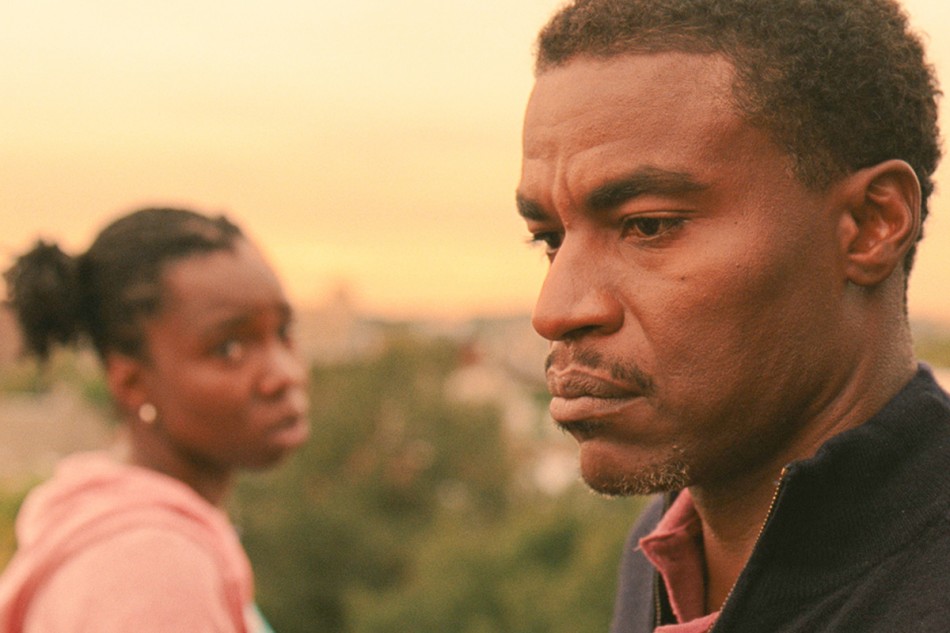In Great Moments in Gay, Team TFE looks at our favorite queer scenes in the movies for Pride Month. Here's Kieran Scarlett on Pariah (2011)
Writing this piece this week, in the wake of tragedy is especially difficult. Thinking about all of the incredible, vital voices that make up Team Experience, as well as the readers who this blog touches on a daily basis, it's impossible not to think that a great number of us could have been (and have been) in places just like that Orlando night club. Safe spaces for marginalized people—queer people in this instance—are sacred, rare and often self-forged. This is especially true of safe spaces for queer people of color, who face an even greater burden of those added identity politics. Now more than ever, it is important to recognize that being queer and open remains a revolutionary act. It's a sad truth to intuit—something so innate and unchanging being a cause for notice and affirmation in the face of a world that is still struggling to understand. It's also beautiful to observe the strength of the queer community, who continue to push forward, forging those safe spaces, making room in spaces that are not yet totally safe, prospering, thriving and living.
Which brings us to Dee Rees' 2011 debut feature film Pariah. This coming-of-age tale charts a young, black lesbian Alike (a magnetic Adepero Oduye) as she struggles to find herself. in the face of a home and school life that are not entirely welcoming to her identity...
Like many young queer teenagers before her, Alike seeks refuge among friends at night, in secret in a lesbian nightclub. She's free to experience the folly and the awkward fumblings of adolescent romance without the sexual scrutiny that exists in non-queer-specific spaces. And, again like many young queer teenagers before her, Alike's parents soon discover the truth of who their child was made to be. It's heartbreaking to watch her plead with her mother, Audrey (Kim Wayans). Loving, but clearly dealing with something beyond the realm of understanding, she lashes out. She violently denounces her daughter's sexuality and home becomes one less safe space for this young, budding queer teenager.
Alike finds refuge in her writing. It's a conduit for her to speak of her experience, unfiltered, unpoliced by the outside world who seeks to change something inside of her that's wrongly viewed as objectionable. She doesn't just find her place. She fights and claws and drags herself, broken down (both physically and emotionally) to her place. After ostensibly being kicked out of her home by her mother mother, she meets with her philandering father, Arthur (Charles Parnell). Arthur's not exactly accepting of Alike's sexuality as something even remotely acceptable in his mind, but he's accepted it as a reality—like a chronic condition that he must deal with. This dynamic is so familiar for so many queer youths. One parent openly intolerant, the other tacitly so. This is not good enough for Alike, who seeks to attend a summer writing workshop at Berkeley which will serve as a bridge into her undergraduate studies at the University. In order to do so, she needs her father to sign a form allowing her to graduate early.

-I'm sorry. Alright? I'm sorry I let her hurt you-
-I just need to know if you'll sign the paperwork. Yes or no.
-Can you forgive me?
-Yes or no?
-You can always come back home. Things are going to be different. I promise you-
-Dad. I'm not running. I'm choosing.
This is a powerful moment, one that underlines much of the film's thesis. Living openly as a queer person and finding a space to do one is a choice. Sadly, it's a choice still marked with complication, heartache and pain. And it's a choice that Alike has made. She will live openly. She will not be silenced or stomped out. And in a world so filled with hostility and anger in the face of such affirmation, it's a beautiful and revolutionary thing to assert. If only it didn't have to be.